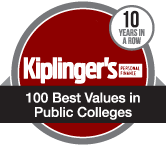College Catalog: 2013-2014
School of Theoretical and Applied Science (TAS): Chemistry (B.S.)
Website: School of Theoretical and Applied Science
Convener:
Faculty:
The study of chemistry provides an understanding of matter and its transformation and reactions. It is central to the understanding of biological and environmental problems. Far from being an esoteric discipline, chemistry has a profound influence on everyday lives. Chemicals are added to food and water for health, preservation, and taste. Synthetic polymers are being used to replace natural materials in furniture and clothing. The major mode of transportation, the automobile, uses the energy released by chemical reactions to start and move. The human body manufactures hormones and enzymes that regulate the living process. Medicine cabinets are stocked with drugs whose chemistry affects the state of body and mind.
The chemistry major at Ramapo, offered by the School of Theoretical and Applied Science, gives its students an in-depth grasp of
theoretical concepts as well as a variety of practical skills. In the first year, students take Fundamentals of Chemistry, an introduction to modern chemical theory presented through the study of atomic and molecular structure. In the next three years, courses in organic, analytical/instrumental, and physical chemistry increase understanding. A selection of chemistry electives, including Cooperative Education placements, independent research study, and a broad range of special topic electives, allow senior students to concentrate in any one of six areas: theoretical, organic, biochemistry, and analytical/ environmental chemistry. Many interdisciplinary courses are offered by other major programs in TAS. Students are encouraged to plan a program of study that includes courses from a number of sciences. Many of the scientific advances of this modern age are in interdisciplinary areas such as biophysics, materials science, molecular biology, medicinal chemistry, protein biotechnology, and environmental science.
Ramapo’s safety-conscious laboratories rely upon contemporary instrumentation, including infrared, ultraviolet-visible, fluorescence, and nuclear magnetic resonance spectrometers, liquid and gas chromatographs, GC/MS, and atomic absorption instruments. Laboratory courses offer a hands-on approach and provide students with valuable experience in technical and analytical skills.
The program is approved by the American Chemical Society. All Ramapo students graduating with a major in chemistry can be certified by the ACS if they have taken certain specified courses.
Job opportunities available to chemistry majors encompass a wide range of activities and institutions. Private industry offers the largest number of positions for chemists, with additional opportunities in federal, state and local government laboratories, research institutes, hospitals, and analytical laboratories. The variety of jobs includes laboratory work, sales, technical service, and administration in the areas of product development, research and production. A bachelor’s degree in chemistry is also a valuable background for students wishing to pursue graduate work in medicine, dentistry, or veterinary work as well as in chemistry, biochemistry, or molecular biology.
The chemistry faculty is actively engaged in scientific research. Among their interests are such widely diverse areas as structure and dynamics of ultrathin organic and biopolymer films, biomaterials science, spectroscopy of biological macromolecules, quantum chemistry, peptide/protein science, medicinal chemistry, organometallic synthesis, catalysis, green chemistry and computer simulations of experiments. Students are encouraged to participate in faculty supervised research projects, under the TAS Research Honors Program. These students agree to a two-semester commitment to do research with a faculty mentor and present their findings at Ramapo and/or external symposia. Opportunities to do more extensive research with faculty are also available. Chemistry majors may also work in Ramapo’s Cooperative Education program, where industrial work experience, for which students earn money and credit simultaneously, alternates with full-time or part-time study.
Ramapo students graduating with a major in chemistry will:
- have a general knowledge of the basic area of biochemistry and have the ability to apply it in a problem-solving environment; be proficient in basic chemical, biochemical, and physical laboratory skills
- have had the opportunity of conducted a research project as part of an upper level course or as a participant in active, individual laboratory research within the college or appropriate cooperative education assignment
- have the ability to communicate scientific information clearly and precisely, both orally and in writing
- have an understanding of the principles and applications of modern instrumentation, computation, experimental design, and data analysis
- have the ability to formulate and carry out strategies for solving scientific problems
Ramapo has up-to-date laboratories for chemistry, biochemistry, genetics, molecular biology, and physics that are utilized in the major. There are opportunities for students to do research with faculty and for experiential learning through cooperative education in nearby industry. The program is supported by computer labs that are available for student use to supplement the instruction in the lecture and laboratories. The major in chemistry is offered by the School of Theoretical and Applied Science and leads to a B.S. degree.
- Transfer students who have 48 or more credits accepted at the time of transfer are waived from the courses marked with a (W) below. Waivers only apply to General Education Requirements NOT School Core or Major Requirements.
- Double counting between General Education, School Core, and Major may be possible. Check with your advisor to see if any apply.
- Writing Intensive Requirement (six courses): three writing intensive courses in the general education curriculum are required: First Year Seminar, Critical Reading and Writing (formerly College English), and Readings in the Humanities; the other three courses are taken in the major.
CHEMISTRY MAJOR
- Subject & Course # – Title & Course Description
- GENERAL EDUCATION REQUIREMENTS
- INTD 101 - FIRST YEAR SEMINAR (W)
- SELECT ONE – (W) BADM 115 - PERSPECTIVES OF BUSINESS AND SOCIETY OR
- (W) SOSC 101 - SOCIAL ISSUES
- CRWT 102 - CRITICAL READING & WRITING II (was ENGL 180)
- AIID 201 - READINGS IN THE HUMANITIES (W)
- SELECT ONE – (W) GE-HISTORY CATEGORY: HIST 101-110
- SELECT ONE – GE-INTERCULTURAL NORTH AMERICA CATEGORY
- SELECT ONE – GE-INTERNATIONAL ISSUES CATEGORY
- SELECT ONE – (W) GE-TOPICS ARTS AND HUMANITIES CATEGORY OR
- (W) GE-TOPICS SOCIAL SCIENCE CATEGORY
- SCHOOL OF THEORETICAL AND APPLIED SCIENCE REQUIREMENT
- SELECT ONE – Science In Cultural Perspective course list *:
- AMER 307 - TECHNOLOGY AND CULTURE IN AMERICA
- ANTH 307 - MEDICAL ANTHROPOLOGY
- CNTP 315 - ART ON THE INTERNET
- COMM 307 - ENVIRONMENTAL WRITING
- ENST 215 - ENVIRONMENTAL HISTORY
- ENST 223 - ENERGY AND SOCIETY
- ENST 305 - ECOLOGY, ECONOMICS AND ETHICS
- ENST 312 - ECOLOGICAL ANTHROPOLOGY
- ENST 313 - APPROPRIATE TECHNOLOGY
- ENST 317 - ENVIRONMENTAL POLICY AND REGULATION
- HIST 396 - HISTORY OF SCIENTIFIC IDEAS
- INFO 315 - COMPUTER LAW AND ETHICS
- LAWS 390 - TOPICS:
- MATH 441 - HISTORY OF MATH
- MGMT 324 - INVENTION FOR MANAGERS AND SCI
- PHIL 322 - PHILOSOPHY OF SCIENCE
- PHIL 328 - BIOETHICS
- PSYC 306 - ETHICAL AND LEGAL ISSUES
- PSYC 423 - HISTORY AND SYSTEMS OF PSYCHOLOGY
- SCIN 210 - SCIENCE, TECHNOLOGY, AND SOCIETY
- SCIN 230 - COMPUTERS AND SOCIETY
- SCIN 235 - HISTORICAL TRENDS IN NURSING
- SCIN 310 - AIDS:BIOLOGICAL, MEDICAL, SOCIAL PERSPECTIVES
- SCIN 346 - SURVEY OF SCIENCE FICTION
- SCIN 390 - TOPICS:
- SCIN 434 - WOMEN AND SCIENCE
- SOCI 230 - SOCIOLOGY OF HEALTH & MEDICINE
- * Please consult the School of TAS for the currently active courses which meet the SCP requirement.
- CHEMISTRY MAJOR REQUIREMENTS
- CHEM 110 - FUNDAMENTALS OF CHEMISTRY I: LECTURE AND LAB
- CHEM 112 - FUNDAMENTALS OF CHEMISTRY II: LECTURE AND LAB (Spring only)
- CHEM 210 - ORGANIC CHEMISTRY I: LECTURE AND LAB (Fall only)
- CHEM 212 - ORGANIC CHEMISTRY II: LECTURE AND LAB (Spring only)
- CHEM 323 - ANALYTICAL CHEMISTRY: LECTURE AND LAB (Fall only)
- CHEM 340 - PHYSICAL CHEMISTRY I: LECTURE (Spring – Junior year)
- CHEM 341 - PHYSICAL CHEMISTRY I: LAB (Fall – Senior year)
- CHEM 342 - PHYSICAL CHEMISTRY II: LECTURE (Fall – Senior year)
- CHEM 343 - PHYSICAL CHEMISTRY II: LAB (Spring – Senior year)
- CHEM 424 - INSTRUMENTAL ANALYSIS (Spring only)
- CHEM 443 - ADVANCED INORGANIC CHEMISTRY: LECTURE
- MATH 121 - CALCULUS I
- MATH 122 - CALCULUS II
- MATH 225 - MULTIVARIABLE CALCULUS
- PHYS 114 - PHYSICS I WITH CALCULUS: LECTURE AND LAB
- PHYS 115 - PHYSICS II WITH CALCULUS: LECTURE AND LAB
- SELECT TWO Chemistry Electives (one at 400 level):
- BIIN 351 - PROTEIN STRUCTURE AND MODELING
- CHEM 312 - CHEMISTRY IN CURRENT TOPICS
- CHEM 345 - MATERIALS SCIENCE
- CHEM 388 - CO-OP/INTERNSHIP CHEMISTRY
- CHEM 400 - INDEPENDENT STUDY: CHEMISTRY
- CHEM 421 - ADVANCED ORGANIC CHEMISTRY
- CHEM 425 - BIOCHEMISTRY OR (Spring only)
- CHEM 426 - BIOCHEMISTRY I LECTURE AND LAB (Fall only)
- CHEM 445 - MEDICINAL CHEMISTRY
- CHEM 446 - BIOCHEMISTRY II LECTURE
- CHEM 450 - SPECIAL TOPICS
- ENSC 341 - ENVIRONMENTAL CHEMISTRY I
- PHYS 423 - QUANTUM MECHANICS I
- SRSH 301 - TAS RESEARCH HONORS / 302 *
- SRSH 401 - TAS RESEARCH HONORS / 402 * (with distinction)
- CHEM 425 and CHEM 426 – can only take one
CHEM 425 and CHEM 443 are required for the American Chemistry Society (ACS) certificate.
* Research can contribute as one elective only. A second elective is still required.
Note: A 2.0 GPA in the major is required for graduation.
- At least 1/2 of the courses fulfilling a minor must be distinct from the student’s major. That is, three of the five courses required for a minor cannot be used towards fulfillment of major requirements. A school core does not need to be completed for a minor. Minors are open to students regardless of school affiliation.
CHEMISTRY MINOR
- Subject & Course # – Title & Course Description
- Required Courses:
- CHEM 110 - FUNDAMENTALS OF CHEMISTRY I: LECTURE AND LAB
- CHEM 112 - FUNDAMENTALS OF CHEMISTRY II: LECTURE AND LAB
- CHEM 210 - ORGANIC CHEMISTRY I: LECTURE AND LAB
- CHEM 212 - ORGANIC CHEMISTRY II: LECTURE AND LAB
- Select TWO of the following Chemistry electives:
- CHEM 323 - ANALYTICAL CHEMISTRY: LECTURE AND LAB
- CHEM 340 - PHYSICAL CHEMISTRY I: LECTURE
- CHEM 421 - ADVANCED ORGANIC CHEMISTRY
- CHEM 424 - INSTRUMENTAL ANALYSIS
- CHEM 443 - ADVANCED INORGANIC CHEMISTRY: LECTURE
- CHEM 445 - MEDICINAL CHEMISTRY
- ENSC 341 - ENVIRONMENTAL CHEMISTRY I
General Education Requirements
Four Year Plan
Graduation Requirements
School of Theoretical and Applied Science Website
Faculty Profiles






